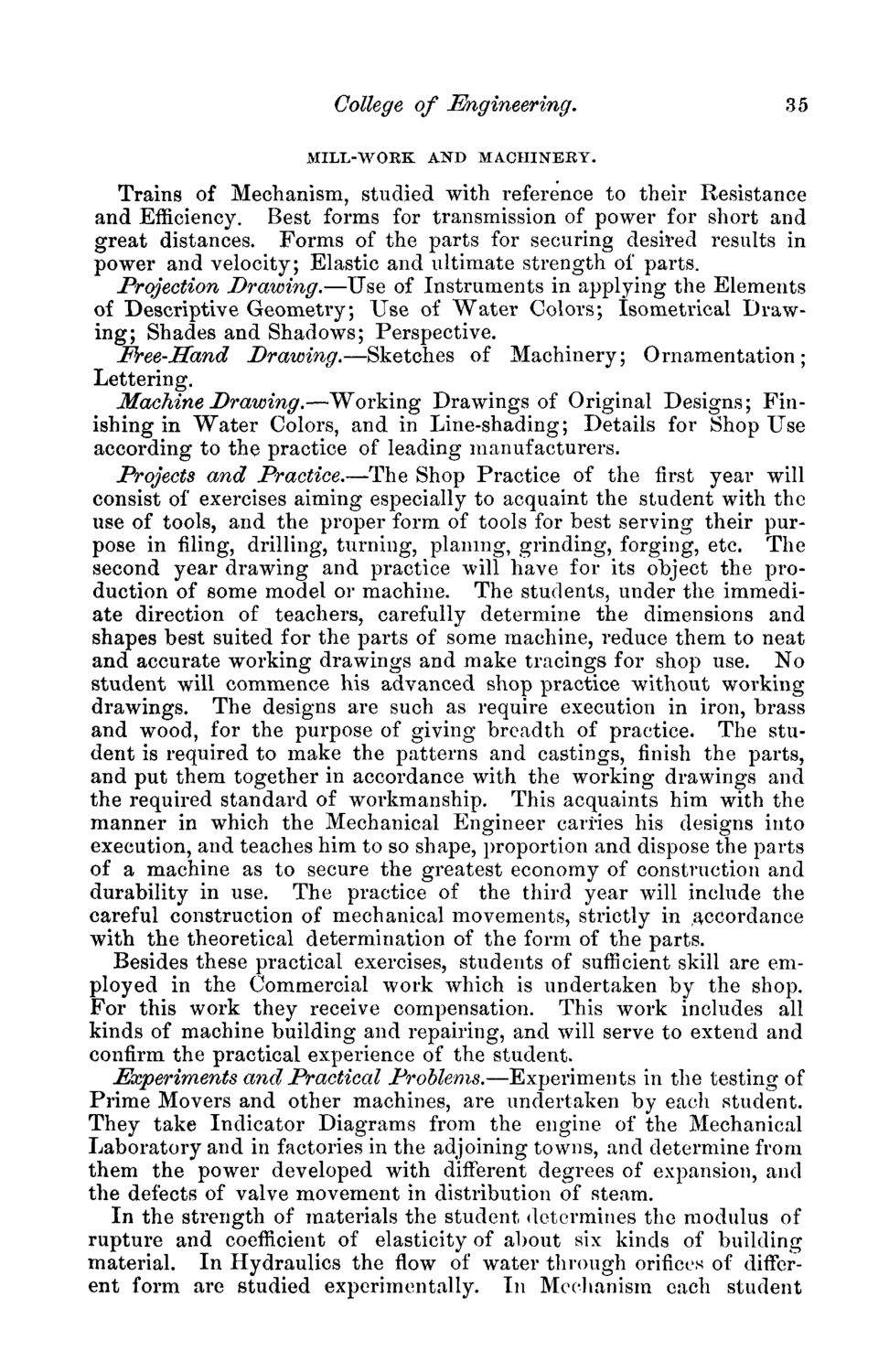| |
| |
Caption: Course Catalog - 1876-1877
This is a reduced-resolution page image for fast online browsing.

EXTRACTED TEXT FROM PAGE:
College of Engineering. MILL-WOEK AND MACHINEKY. 35 Trains of Mechanism, studied with reference to their Resistance and Efficiency. Best forms for transmission of power for short and great distances. Forms of the parts for securing desired results in power and velocity; Elastic and ultimate strength of parts. Projection Drawing.—Use of Instruments in applying the Elements of Descriptive Geometry; Use of Water Colors; Isometrical Drawing; Shades and Shadows; Perspective. Free-Hand Drawing.—Sketches of Machinery; Ornamentation; Lettering. Machine Drawing.—Working Drawings of Original Designs; Finishing in Water Colors, and in Line-shading; Details for Shop Use according to the practice of leading manufacturers. Projects and Practice.—The Shop Practice of the first year will consist of exercises aiming especially to acquaint the student with the use of tools, and the proper form of tools for best serving their purpose in filing, drilling, turning, planing, grinding, forging, etc. The second year drawing and practice will have for its object the production of some model or machine. The students, under the immediate direction of teachers, carefully determine the dimensions and shapes best suited for the parts of some machine, reduce them to neat and accurate working drawings and make tracings for shop use. No student will commence his advanced shop practice without working drawings. The designs are such as require execution in iron, brass and wood, for the purpose of giving breadth of practice. The student is required to make the patterns and castings, finish the parts, and put them together in accordance with the working drawings and the required standard of workmanship. This acquaints him with the manner in which the Mechanical Engineer carries his designs into execution, and teaches him to so shape, proportion and dispose the parts of a machine as to secure the greatest economy of construction and durability in use. The practice of the third year will include the careful construction of mechanical movements, strictly in accordance with the theoretical determination of the form of the parts. Besides these practical exercises, students of sufficient skill are employed in the Commercial work which is undertaken by the shop. For this work they receive compensation. This work includes all kinds of machine building and repairing, and will serve to extend and confirm the practical experience of the student. Experiments and Practical Problems.—Experiments in the testing of Prime Movers and other machines, are undertaken by each student. They take Indicator Diagrams from the engine of the Mechanical Laboratory and in factories in the adjoining towns, and determine from them the power developed with different degrees of expansion, and the defects of valve movement in distribution of steam. In the strength of materials the student determines the modulus of rupture and coefficient of elasticity of about six kinds of building material. In Hydraulics the flow of water through orifices of different form are studied experimentally. In Mechanism each student
| |